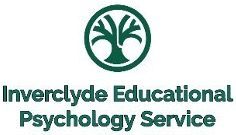Understanding what’s going on
Educational Psychologists (EPs) know that by the time they’re asked to work with adults, children and young people, things can be or seem quite complex and messy. Often we’re asked to work in situations where things have been going on for a long time. Therefore, although the people we work with often really want things to feel better or easier quickly, it wouldn’t be fair if EPs or members of our team arrived at a school and assumed that there were always easy actions that need to happen and everything will be fine.
It is likely that strategies and interventions will have been tried but, for whatever reason, the situation hasn’t improved. Discussing this with an EP, who can use psychology to help unpick what has been tried, is likely to help towards working out what to try next.
Working together
Every child is unique, as is every class, teacher, parent or carer and so every solution needs to be carefully considered and any suggestions need to be right for everyone involved. While certain suggestions or actions might be right for a school, they might not be right for a particular child. EPs will most often want to work with different people to jointly solve a problem and develop solutions. Teachers and early years practitioners have expertise about their classrooms and playrooms, the curriculum, learning and teaching. Parents and carers have deep expertise and knowledge about their children. EPs have expertise in child development and psychology.
Coming together and sharing all this expertise is the best way to solve problems, but we’re also aware that this isn’t a quick fix process. In our experience, one of the most powerful steps forward is having a shared understanding of what is going on, and what changes we would like to see in the future.
Gaining a child or young person’s views
This is an important part of an EP’s job. Often, we’re asked to become involved to support a child or young person who seems to be experiencing difficulties. Children and young people are at the centre of our thinking and work and so it’s important to try to understand what they think about what is going on, what the difficulties are and what they think is working well.
Again, there are a huge range of tools and techniques that an EP can use to gain a child’s view and no two children will be the same. In most cases, an EP will decide what tools or techniques to use based on the conversations they have with children and the adults that know them best.
Credit: O’Hare, D.P. (2021, October 22). Educational psychology. edpsy. https://edpsy.org.uk/about/educational-psychology/


